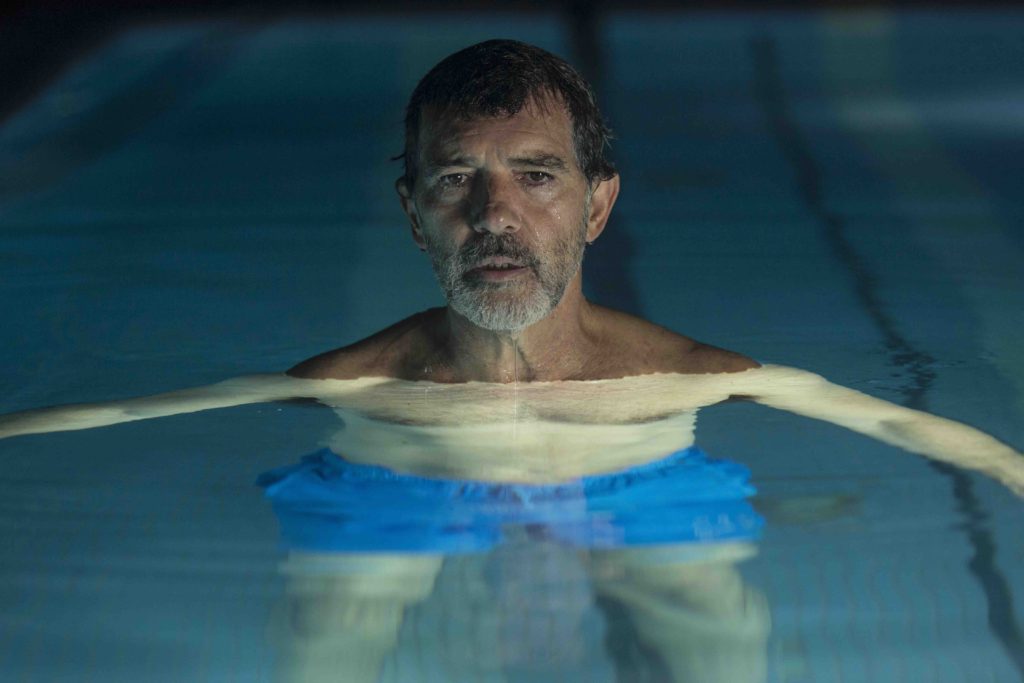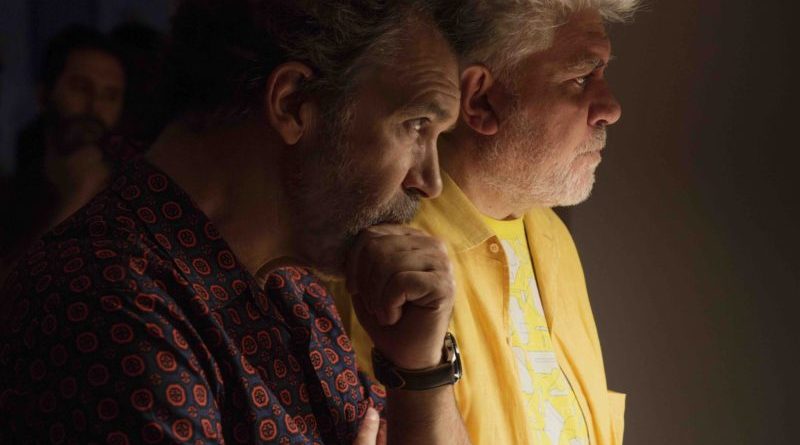IN HIS OWN WORDS: The pain and glory of Pedro Almodóvar
Photo: Pain and Glory, directed by Pedro Almodóvar, stars Antonio Banderas. Photo courtesy of © El Deseo / Manolo Pavón / Courtesy Sony Pictures Classics / Provided with permission.
The remarkable new film by famed director Pedro Almodóvar stars Antonio Banderas as a filmmaker who hasn’t made a movie in a great number of years. He lives a somewhat reclusive life, with memories of a former partner lingering and terrible pain from a back surgery keeping him constantly in a state of discomfort.
In many ways, Banderas’ character of Salvador Mallo is a stand-in for Almodóvar himself. The director had back surgery a couple of years ago, and the pain frightened him, giving him thoughts that perhaps his cinematic career was coming to an end.
Because of the plot and protagonist of Dolor y Gloria, one could argue this is perhaps the closest Almodóvar has gone to holding up a cinematic microscope and letting the audience take a closer look at his motivations, inspirations and desires.
Pain and Glory opened today, Oct. 4, after a celebrated run at the Cannes Film Festival, with Banderas winning Best Actor and Almodóvar being nominated for the Palme d’Or. The director’s success at the world-famous festival is no surprise; each time he opens a film, critics have praised the picture with plenty of plaudits, all fully justified. Is there a director who has been as consistently on the mark as Almodóvar? Think of Broken Embraces, Volver, Bad Education, Talk to Her, All About My Mother, Kika, Women on the Verge of a Nervous Breakdown and so many others.
At a recent public screening of Pain and Glory at the New York Film Festival, Almodóvar was in attendance to take part in a post-screening Q&A. The first question from the crowd was asked by John Soltes of Hollywood Soapbox.
In the film, Banderas’ character of Salvador has a powerful line about filmmaking and motivation. He essentially says that without the ability to make movies, his life has no meaning. One wonders, is Almodóvar of the same mindset?
“Yes, it is a line that the character says,” Almodóvar said through a translator. “It is definitely something that describes me as well. … This is not something that you actually see in the film, but what we know is that he’s someone who is an adult who has actually lived quite a baroque life — a life full of adventure, full of life, full of color. You see that in the things that surround him in his house, but yet where you find him at the beginning of the film, he is in this kind of isolated position.”
This isolated position is given a disturbance when Salvador is asked by a local film festival to present one of his “classic” movies and offer the audience a Q&A. Sound familiar?
Salvador agrees, but he needs to contact the star of the film, whom he has fallen out with because they disagreed about the actor’s performance 30 years prior. Now, Salvador realizes the performance and the film hold up, and he would like this actor, played by Asier Etxeandia, to join him for the event.
“Also at the point in which we find him, he’s had back surgery, and he doesn’t find himself quite physically capable of even participating in something like a shoot because a shoot is something that demands a lot of you physically,” Almodóvar said of his protagonist. “And, for example, I’ve also myself had back surgery, not as intense as the one that you see in the film, but I have had that fear. I had fear that I would not be able to shoot again, particularly in the time period leading up to Julieta [in 2016] and about a year after.”

When Salvador makes contact with Alberto Crespo, this former actor of his, he starts talking about the old times and tries to make amends. He also uses some of Alberto’s heroin, transferring his addiction to isolation to an addiction to an actual hard drug.
“His addiction is not necessarily to heroin,” the director said. “His addiction is really to the lack of being able to make movies. … And, for example, at the point in which he starts consuming heroin, which is known to be quite a great painkiller, at the age that he is, he knows better. And he knows that he’s not necessarily suicidal, but he knows that he’s taking the risk that his life could be in danger.”
Almodóvar sees this main character as a person marked by desire, and this is a trait that goes back to when Salvador was a child (in “flashback” scenes, Salvador is played by Asier Flores, and Penélope Cruz plays his mother, Jacinta).
“In the film, I speak about the very first time in which he feels these first impulses towards desire, which was when he was a little boy,” Almodóvar said. “And when we find him in his 60s, he has sort of transposed if you like the object of his desire. His desire is no longer a sexual desire. What he desires to do is to tell stories.”
A desire, no doubt, shared by Almodóvar himself.
By John Soltes / Publisher / John@HollywoodSoapbox.com
Pain and Glory, written and directed by Pedro Almodóvar, is now playing in movie theaters. Click here for more information.

